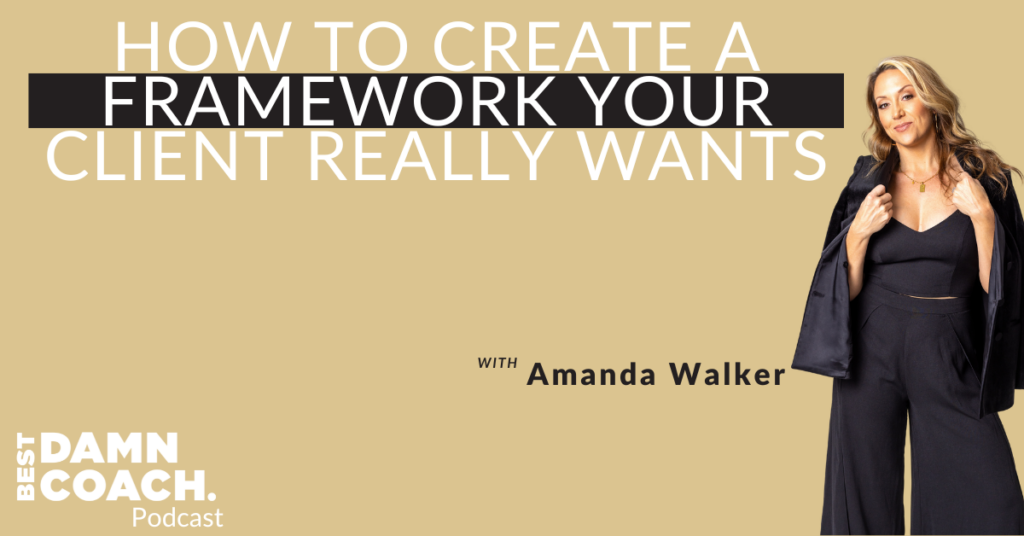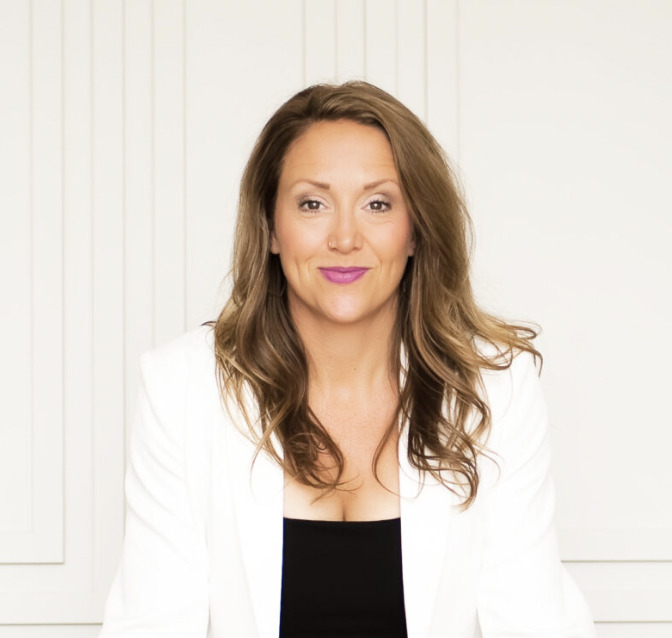How To Create A Framework Your Client Really Wants
As a coach, have you ever felt frustrated putting all your energy into your coaching business only to hear crickets? You’re not alone. I’m diving deep into a game-changing topic; how to build a framework that your clients want.
Creating a powerful coaching framework isn’t about fancy acronyms or catchy phrases. It’s about developing an intentional, results-driven process that guarantees success for your clients. But here’s the kicker – your framework needs to be what your clients desire. This is where many coaching businesses hit a roadblock. We often rush into coaching. We are passionate about transformation, but our approach may or may not resonate with our target audience.
In this episode, I’m sharing three key strategies to ensure your framework is what your clients are looking for. We’ll explore how to create proof of service, get paid while refining your process, and collect invaluable live feedback. These insights are crucial whether you’re starting out or looking to scale your existing coaching practice.
Aligning Your Framework with Client Needs
One of the most critical steps in developing a client-centered framework is creating proof of service. This process is market research. This will ensure that your coaching approach aligns with what your potential clients need and want.
Here are some effective ways to gather this crucial information:
-
Surveys and Questionnaires: Create an intake form or questionnaire for your audience. Distribute it through social media or your email list. Ask key questions like:
-
What’s your greatest struggle right now?
-
If you could wave a magic wand, what would you achieve?
-
What kind of support do you think you need?
-
-
One-on-One Calls: Set up calls with ideal clients to have deeper conversations. With permission, record these calls to capture exact language and insights.
-
Think Tanks: Organize group sessions with past clients or coaches from other communities. This approach provides diverse perspectives and highlights common pain points.
Remember, the goal is to bridge the gap between your vision and your clients’ needs. Often, we fall into the trap of “insider marketing.” It’s using language that’s too complex with our clients’ actual concerns.
Getting Paid to Build A Framework Your Client Really Wants
While it’s crucial to have a solid foundation, don’t fall into the perfectionism trap. Here’s how to refine your framework while actually working with clients:
-
Start with a Basic Structure.
Build your initial framework based on your research and expertise.
-
Launch a Pilot Program.
Offer your framework to a small group of clients at a reduced rate. This allows you to test and refine your process in real time.
-
Iterate Based on Real Experiences.
As you work with clients, pay close attention to their progress, challenges, and feedback. Use these insights to improve your framework.
-
Document Everything.
Keep detailed notes on what works, what doesn’t, and where clients seem to struggle most. This information is gold for future iterations.
By getting paid to refine your framework, you’re not only generating income but also creating a product that’s battle-tested and valuable to your clients.
Collecting Live Feedback
To ensure your framework remains relevant and effective, it’s crucial to collect live feedback throughout the coaching process.
Here’s how to do it:
-
Mid-Program Check-ins.
Schedule feedback sessions halfway through your program. This allows you to make real-time adjustments and shows clients you’re committed to their success.
-
End-of-Program Evaluations.
Conduct thorough evaluations at the end of your coaching engagement. This provides valuable insights for future iterations of your framework.
-
Multiple Feedback Formats
Offer various ways for clients to provide feedback:
-
One-on-one Zoom calls
-
Written surveys or forms
-
Audio or video testimonials (tools like SpeakPipe can be useful)
-
-
Ask the Right Questions
Some powerful questions to ask include:
-
What worked well for you in this process?
-
What was your greatest struggle?
-
At what point did you feel most supported? Least supported?
-
Is there an area where I could provide more support?
-
Remember, feedback isn’t personal – it’s a tool for mastery. Approach it with an open mind and a genuine desire to improve your coaching practice.
Leveraging Your Framework Across Your Business
Once you’ve developed a framework your client really wants, it becomes the backbone of your entire coaching business.
Here’s how to leverage it:
-
Content Creation
Use elements of your framework to create social media posts, podcast episodes, and blog articles.
-
Marketing
Your framework becomes your unique selling proposition, setting you apart in a crowded market.
-
Scaling Your Business
A well-defined framework makes it easier to train other coaches or create digital products based on your methodology.
-
Building Authority
As you refine and share your framework, you position yourself as an expert in your niche. You will start attracting more clients and opportunities.
Ready to Build Your Framework? Join Me Live!
If you’re excited about creating a client-centered framework for your coaching business, I have an incredible opportunity for you. I’m hosting my only live cohort of the Framework Builder Lab for 2024, starting October 30th.
In this six-week program, we’ll meet live every Wednesday, where I’ll guide you through the process of building your framework step-by-step. You’ll have direct access to me, live Q&A sessions, and the support of other brilliant coaches.
Don’t miss out on this chance to transform your coaching business. Head over to Amanda-walker.com/lab now to secure your spot. Enrollment closes on October 29th, so act fast!



